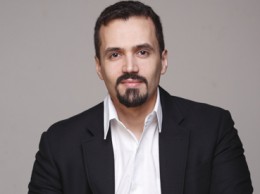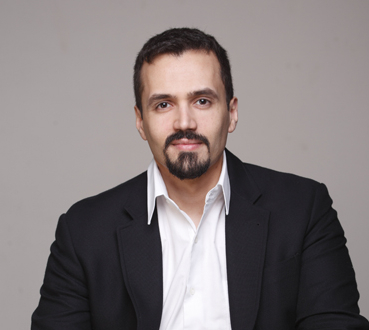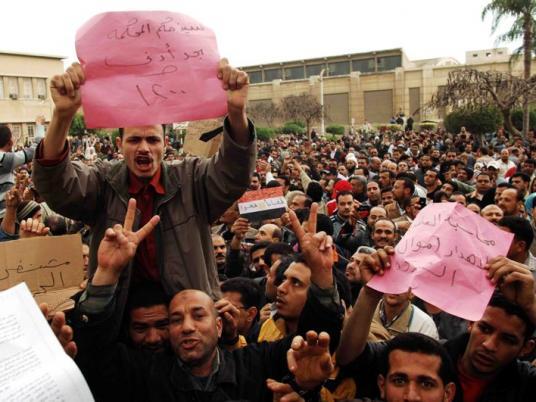
Three years ago, as a friend of mine puts it, everything seemed possible. The 25th of January uprising gave birth to a revolution, and the sky was the limit. Today, as the third anniversary draws close, the promises of Tahrir Square seem distant. Optimism over opportunities is replaced with incredulousness over madness, the inclusive nature of the revolution’s birth replaced with zero-sum games. Strangely, despair hasn’t set in – but sobriety definitely has.
On the level of quantity, there are certainly more examples of folly and rashness from those who support the military in Egypt. There are far more Egyptians who support that institution than those who oppose it, and they are even more disproportionately represented in the mass media. It is not unusual to see spectacles such as a former member of the Supreme Constitutional Court claim in a television program, for example, that US President Obama’s brother is “one of the architects of investment for the international organisation of the Muslim Brotherhood”. The host asked for clarification – but didn’t call her remarks preposterous. More recently, a journalist and former MP, Mostafa Bakri, on a remarkably popular television program, incited violence against “Americans” en masse, if the US went through with a “plot” to kill General Sisi. The host didn’t seem to be bothered particularly by the claim – or at least did not display any outward sign of it – and certainly the other guest on the programme was simply nodding in agreement.
That is one aspect of the mania and hysteria that occupies what one hopes is on the margins of one side of the political polarisation in Egypt. Less on the margins, of course, are actual court cases and official investigations into various personalities. These included some that were humourous, but rather worrying, such as the investigation called by the public prosecutor into Vodafone for an advertisement. The famous puppet, “Abla Fahita”, was accused by a blogger of sending some sort of “message” to terrorists – rather than ignore the claim for the silliness that it was, the public prosecutor decided to investigate.
The puppet case (who would’ve thought I’d ever write that) probably will not get any further than that (one hopes). Yet, that leaves many other cases. Former MP, and liberal (one of the few that actually exist) politician Amr Hamzawy, is under a travel ban. The basis of it – Hamzawy tweeted last year that a court verdict against NGO workers was shocking, and a transparency lacking. The investigating judge as “defamation of the judiciary” regarded that line. Quite.
But let’s not get ahead of ourselves, and claim that it is only some parts of the pro-military Egyptian elite that might be somewhat surprising. The Muslim Brotherhood and its allies are hardly proud examples of much different. Beyond the sectarian rhetoric against Christians that has never stopped from its official outlets, the messaging continues to be rather removed from reality. Similar to “polls” reported in the summer that indicated the overwhelming majority of Egyptians opposed the removal of Mohammed Morsi (polls which were impossible in the time frame mentioned, and from an organisation few seemed to have ever heard of in the polling industry), another “research study” promoted by Brotherhood supporters surprised us yet again. According to this “study”, 11% of the population came out to vote in the referendum, contrary to the official claim that 38% did. Now, one ought to legitimately call into question the process of the referendum, the fairness of it, and the environment in which it took place. But as yet, none inside of Egypt, other than those affiliated to the Brotherhood and its alliance, question the actual result. Such is the level of popular support for the army – whether one likes it or despises it utterly.
It wouldn’t be the first time the Brotherhood made some general strategic mistakes. In the aftermath of the military ouster of Morsi, the one sector that could be relied upon to hold the new military backed government to account was the human rights and civil rights sector. Indeed, 14 individual organisations signed up to a joint statement on the mass killing of protesters over the course of the past three years – a brave one to issue, considering the repression of dissent from various quarters today. Rather than thank these organisations for standing up for the fundamental rights of all Egyptians, including those that support the Brotherhood, the official website of the Islamist group had a different idea. It carried a statement by the Brotherhood’s political party that stated “such NGOs have become the long arms of Western injustice that strive to eradicate the Islamic identity, discredit Islamist politicians and frustrate their efforts.” Why? Because the statement also took Morsi’s government in 2012-2013 to account, as part of the past three year period. It does not strike me that there is much strategic value in alienating the last non-Islamist sector of society that will protect the fundamental rights of all, including the Brotherhood – but perhaps I missed something.
The reality of all of this is clear. The “zero-sum” nature of this current political crisis, which has already taken hundreds upon hundreds of lives and led to thousands of arrests and truly damaging social polarisation, sees no sign of being drawn back. On the contrary, it seems the main protagonists are actually quite comfortable in this zone where everyone but your close allies must be the enemy.
It is, indeed, a far cry from the promise of that square in downtown Cairo, three years ago. Somehow, though, despair fails to creep in. I wrote to one of those charged recently, and he replied to me, “I’ll continue to defend the values of human rights and freedoms. I’ll continue to write and say what I believe in, in spite of the fact that my space is shrinking.” They’ve lost their hope the revolution will bring widespread change in the next decade – perhaps not even in this generation. But journalists, activists and human rights defenders, draw on a seemingly endless supply of determination to continue. Optimism does not really seem to come into it anymore – now, it’s simply a dogged, instinctive resolve to reject despondency.
Hope hasn’t been replaced by despair. Instead, it’s just become more sober. Those who truly supported the 25 January Revolution in 2011 and didn’t turn to partisan self-interest know what they’re up against – and they know how few friends they now have. The best of them, though, know that actually, they always had few friends, and that it was never about popularity – it was about what was right. It still is. It always will be.




